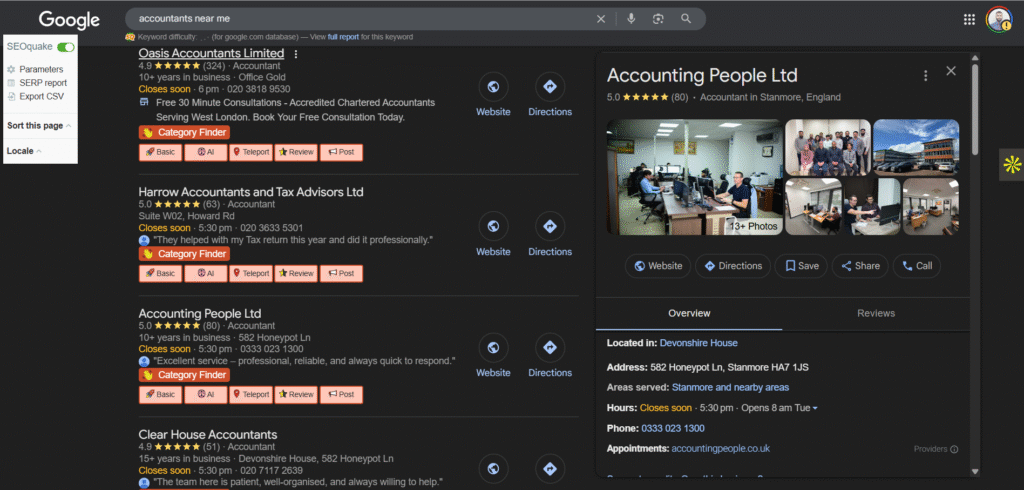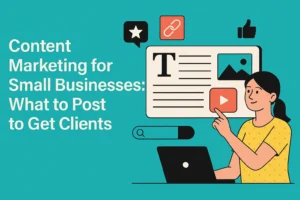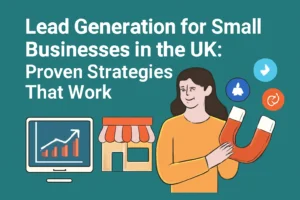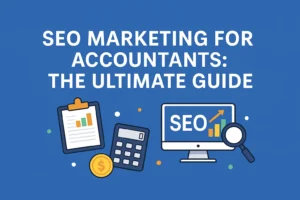Why Small Businesses Need Smart Marketing, Not Big Budgets
Running a small business in the UK can be both exciting and challenging. Between managing clients, handling finances, and staying ahead of the competition, finding time and money for marketing often feels impossible. Many business owners assume that marketing success only comes from large budgets or professional agencies. The truth is that small businesses can achieve great results with smart, low-cost marketing strategies.
Modern digital tools have levelled the playing field. You no longer need to spend thousands on advertising to get noticed. Instead, with creativity, consistency, and the right techniques, you can attract customers, build trust, and grow your business sustainably. Whether you are a local café, a boutique shop, or a small accounting firm, marketing on a budget is about working smarter, not harder.
In this guide, you will learn practical and affordable ways to market a small business in the UK. From optimising your Google profile to using social media and word-of-mouth effectively, each strategy is designed to bring measurable results without heavy spending.
Create a Strong Online Presence with Local SEO and Google Business Profile
If you want to market a small business in the UK effectively without spending much, start with visibility. Your potential customers are already searching for products and services like yours online. According to Google, more than 70 percent of online users search for local businesses before visiting them in person. That means if your business does not show up in local search results, you are missing valuable opportunities every single day.

Optimise Your Google Business Profile
Your Google Business Profile (GBP) is one of the most powerful free tools for small business marketing in the UK. It helps your business appear on Google Maps and in local search results when someone searches for terms like “coffee shop near me” or “accountant in London.”
To get started:
Google Business Profile Checklist
-
Claim and verify your Google Business Profile.
-
Add accurate Name, Address, Phone and your website URL.
-
Upload high-quality photos of your business, team and products.
-
Post updates regularly. Share offers, news and customer highlights.
-
Encourage happy customers to leave reviews and reply to each review promptly.
Positive reviews do more than build trust. They also improve your visibility in local searches. Businesses with consistent, genuine reviews are more likely to appear in the top results, even when competing against bigger companies.
Use Local SEO to Reach Nearby Customers
Local SEO focuses on making your business easy to find in your area. Start by using location-based keywords on your website and social media, such as “plumber in Manchester” or “accountant in Edgware.” Include these naturally in your page titles, headings, and meta descriptions.
Also, list your business on trusted local directories like Yell, Thomson Local, and VouchedFor. These listings help Google confirm your business details and improve your rankings in local search results.
With consistent local SEO, even small businesses can compete with national brands and attract steady traffic without spending on ads.
Use Social Media Marketing to Build Awareness and Trust
Social media is one of the most affordable and powerful ways to market a small business in the UK. It allows you to connect directly with your audience, showcase your brand personality, and build genuine trust without large ad budgets. The key is consistency and storytelling rather than heavy promotion.
Focus on the Right Platforms
Not every social platform will suit your business. Choose the ones where your audience spends most of their time. For example:
- Instagram and Facebook are perfect for local businesses such as cafés, salons, or retail stores.
- LinkedIn works well for professional services like accountants, consultants, or agencies.
- TikTok and YouTube Shorts are great for educational or behind-the-scenes content that builds connection.
If you are unsure where to start, my detailed post on how to use digital marketing for small businesses in the UK explains how to choose the right channels for your goals.
Create Valuable Content, Not Just Promotions
Audiences scroll past salesy posts quickly. What makes people stop and engage is value. Share helpful tips, short tutorials, or behind-the-scenes moments that humanise your brand. For instance, if you run a bakery, show how you prepare your best-selling cake. If you are an accountant, share simple tax-saving tips for small businesses.
Short videos and Reels perform particularly well. In fact, research shows that video content generates 1200 percent more shares than text and image posts combined (Wordstream, 2024). So even with a small budget, creating short, authentic videos can multiply your reach.
Engage and Build Relationships
Don’t just post and disappear. Respond to comments, reply to messages, and join community discussions. This builds trust and signals to algorithms that your profile is active and valuable. Over time, this engagement increases your organic reach.
Social media is also a great place to repurpose content from your blogs. For example, if you publish articles on marketing tips or SEO advice on muhammadarsam.com/blog, share short insights from those posts as carousels or short clips. This drives more traffic to your site and strengthens your internal linking strategy.
Leverage Content Marketing and Email to Build Long-Term Relationships
If you want to market a small business in the UK effectively and affordably, focus on content marketing. Great content helps you attract, educate, and retain customers over time. Instead of paying for every click, you build an audience that keeps coming back for advice and solutions.
Start with Helpful, Searchable Content
When people search for solutions online, your content should be what they find. For example, a small London-based accountant could write blogs like “How to Save on Tax as a Sole Trader” or “How to Choose the Right Accounting Software for Your Business.”
Each piece of content should answer a real question your audience has. Use tools like Google’s “People Also Ask” or AnswerThePublic to find trending topics. Then, optimise your content with keywords such as small business marketing UK, digital marketing for small business, and affordable marketing ideas UK.
You can also explore more practical content ideas on my digital marketing blog where I share simple ways to create content that ranks and converts.
Combine Content with Email Marketing
Email is one of the most cost-effective ways to nurture relationships with your audience. Research from HubSpot shows that email marketing delivers an average return of £36 for every £1 spent. It allows you to share updates, promote offers, and provide value directly in your customer’s inbox.
You don’t need expensive software to start. Platforms like MailerLite and Brevo (Sendinblue) offer free plans for small lists. Begin with a simple weekly or monthly newsletter that includes helpful tips, blog links, or exclusive deals.
If you already have content published on muhammadarsam.com, use it to build your email sequence. Each blog can become an email topic, linking readers back to your site. This not only keeps your audience engaged but also strengthens your website’s SEO through internal linking.
Encourage Engagement Through Value
Your goal with content and email is not just to sell but to create trust. When customers see you as a knowledgeable and reliable source, they are more likely to buy from you later. Add clear calls to action at the end of each email or article, such as “Book a free consultation” or “Read more marketing tips here.”
With time, a consistent mix of valuable content and personalised emails will help you build authority and turn followers into loyal customers.
Use Free and Low-Cost Tools to Simplify Marketing
Marketing a small business in the UK does not have to be time-consuming or expensive. There are dozens of free and affordable tools designed to make digital marketing easier, even if you are not a technical expert. These tools help you save money, stay consistent, and manage everything from content creation to analytics.
Free Tools to Get Started
Free & Affordable Tools for Small Business Marketing
-
Canva – Perfect for creating social media posts, flyers and presentations. You can use ready-made templates to design professional-looking graphics for free.
-
Google Analytics & Search Console – Essential for tracking your website traffic, audience behaviour and keyword performance. These tools help you understand what is working and what needs improvement.
-
Buffer or Later – Schedule your social media posts in advance and maintain a consistent presence without spending hours every day managing your platforms.
-
Mailchimp or Brevo – Excellent tools for managing your email campaigns and building subscriber lists using intuitive, ready-made templates.
-
Google Keyword Planner – Ideal for finding relevant keywords when creating blogs or landing pages, helping you improve your SEO performance and attract the right audience.
Affordable Tools That Add Value
As your marketing grows, you can upgrade to paid versions of some tools for more functionality. For example:
- Canva Pro for advanced design templates and branding kits.
- Ahrefs or Ubersuggest for keyword research and backlink tracking.
- GoHighLevel or HubSpot for CRM automation and client follow-ups.
Investing in the right tools saves both time and money in the long run. The goal is to use automation and analytics to make smart marketing decisions that bring consistent results.
Track and Adjust Regularly
No marketing strategy is perfect from day one. Use analytics from your website and social platforms to track what performs best. Double down on the tactics that drive engagement and leads, and adjust or stop those that do not.
This data-driven approach ensures that every effort you make contributes directly to your growth. As I explain in my post on digital marketing for small business owners, the most successful marketers are not those who spend the most money, but those who monitor results and adapt quickly.
Build Partnerships, Reviews, and Word-of-Mouth Referrals
When it comes to marketing a small business in the UK without a big budget, relationships can often outperform advertising. Building partnerships, encouraging customer reviews, and leveraging referrals are some of the most effective and affordable ways to attract new clients.
Form Local Partnerships
Collaboration is one of the simplest ways to reach new audiences. Partner with other local businesses that complement your services. For example, a coffee shop could collaborate with a local bakery, or a marketing consultant could partner with a web designer.
These partnerships can take many forms — joint social media campaigns, bundle offers, or even local events. By working together, you gain access to each other’s audiences without additional advertising costs.
Encourage Customer Reviews
Customer reviews are one of the strongest marketing assets a small business can have. Research by BrightLocal shows that 87 percent of consumers read reviews before choosing a local business, and most trust them as much as personal recommendations.
Encourage happy clients to leave reviews on Google, Trustpilot, or Facebook. Always respond to both positive and negative reviews politely and professionally. This shows potential clients that you care about feedback and value transparency.
You can also display your best reviews on your website or social media. It builds credibility and helps new visitors trust your brand faster.
Turn Referrals into a Growth Engine
Word-of-mouth marketing remains one of the most powerful tools for small business owners. Create a simple referral program where existing clients get a discount or freebie for bringing in new customers. It not only increases loyalty but also helps you gain high-quality leads who already trust you through a mutual connection.
By focusing on partnerships, reviews, and referrals, you create a network-driven growth system that keeps delivering results without heavy spending.
Conclusion and Call to Action
Marketing a small business in the UK without a big budget is not only possible but achievable with consistency and creativity. You do not need to compete with large corporations or spend thousands on advertising. By focusing on what truly matters — visibility, trust, and relationships — you can build a strong online presence that continues to grow over time.
The strategies shared in this guide, such as local SEO, social media marketing, content creation, and customer reviews, are practical and proven. They help small business owners like you attract local customers, retain existing clients, and scale steadily.
The secret is to take one step at a time. Start by setting up your Google Business Profile, create a few engaging posts for your social media pages, and publish helpful content that answers your customers’ most common questions. Every small effort adds up to big results when done consistently.
If you want to explore more ways to market your business effectively, visit my homepage to learn about the digital marketing services I offer. You can also browse the blog section for step-by-step guides and marketing ideas tailored for small UK businesses.
And if you are ready to take your marketing to the next level, I would love to help you create a strategy that fits your goals and budget. Get in touch today for a free consultation and start building your brand the smart way.
Frequently Asked Questions
1. What is the best way to market a small business in the UK on a budget?
Start with free or low-cost channels like Google Business Profile, local SEO, and social media marketing. Focus on building visibility and trust rather than spending heavily on ads.
2. How can I promote my business locally without paid ads?
Use local SEO strategies such as optimising your Google Business Profile, joining community Facebook groups, and encouraging customers to leave online reviews. These help you appear in local searches and build reputation naturally.
3. Which social media platform works best for small businesses in the UK?
It depends on your target audience. Instagram and Facebook are great for visual businesses, LinkedIn works best for professional services, and TikTok is ideal for engaging short-form content.
4. Is email marketing still effective for small businesses?
Yes. Email marketing offers one of the highest returns on investment, with studies showing an average ROI of £36 for every £1 spent. It is great for nurturing relationships and repeat sales.
5. What are some free marketing tools I can use for my business?
Free tools like Canva, Google Analytics, Buffer, and Google Keyword Planner are perfect for managing design, analytics, and scheduling social posts without extra cost.
6. How can I attract new customers without running ads?
Focus on building authority through helpful blog posts, local SEO, social media engagement, and encouraging happy customers to refer friends. Consistency matters more than budget.
7. How often should I post on social media to grow my business?
Aim for at least three to five times per week. Consistent posting and interacting with followers helps build trust and keeps your brand visible.
8. Do I need a website to market my business effectively?
Yes. A website gives your business credibility and acts as your digital storefront. Even a simple site with your services, contact details, and customer testimonials can make a big difference.





